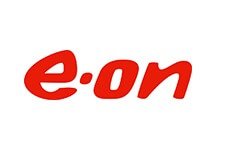 E.ON have announced plans to separate its business into two, sidelining its nuclear and fossil fuel generation assets from its supply and renewable investments.
E.ON have announced plans to separate its business into two, sidelining its nuclear and fossil fuel generation assets from its supply and renewable investments.
E.ON as we have reported elsewhere are suffering from the German government’s decision to refocus the country to renewable energy at the cost of marginalising existing investment.
The planned new company will combine E.ON’s conventional generation assets, its global energy trading arm and its exploration and production business. The plan is to list the business at some point in 2015.
Bold new beginning
The announcement, described as a “bold new beginning” by chief executive Johannes Teyssen follows E.ON posting a 25% drop in profits earlier this year.
The remaining business will focus on renewables, distribution networks and customer services supported by 40,000 of its total 62,000 employees with the remainder transferring to the new business.
Mr Teyssen said:
“We firmly believe that creating two independent companies, each with a distinct profile and mission, is the best way to secure our employees’ jobs. Our new strategy therefore isn’t a job-cutting programme.”
The transition to renewables, known as the Energiewende, and launched by the German government in 2000 has been at the root of many of E.ONs recent problems. Indeed Teyssen claims that the ‘traditional’ business model for utilities has “broken apart” leading to the need to change.
The resultant expansion of renewables under Energiewende and the subsidies and priority access provided for them to the German grid, has pushed down wholesale prices, hitting profits and leaving E.ONs traditional investments exposed. It is this ‘bad’ business that is being cut adrift.
Yet Teyssen himself claims the decision to radically restructure the business under distinct ‘old’ and ‘new’ lines was not prompted by political actions, instead Teyssen explained:
“In the end technology breaks the value chain in two pieces, and not fundamentally politics or regulation. The main driver is technology and customers.”
Let the market decide
But Teyssen also made a thinly veiled point that it was for the market and not political ambition to decide the future of fossil fuels and renewable energy, saying:
“The question is what will stop it [fossil fuels]? Will it be the climate ambition or the competitiveness of other sources? I’m not certain on that, but it’s absolutely right that we should find a technology answer or a market answer.”
Reacting to the news, Vincent Gilles, Head of European Utilities Research at Credit Suisse, openly questioned the rationale for the split saying:
“It doesn’t really change anything,”
“You’ve got a problem, and you split the problem in two. The assets are either not attractive to investors, or if they’re about to rebound then you keep them.”
Then again, in the face of such a dramatic change in the domestic market landscape, E.ON couldn’t afford to simply do nothing.
